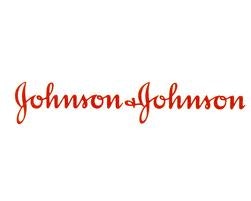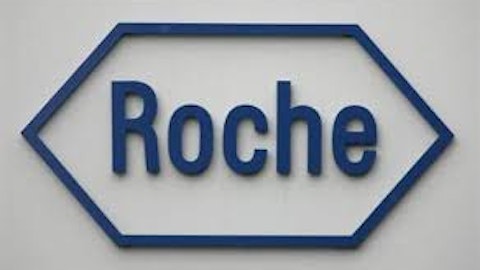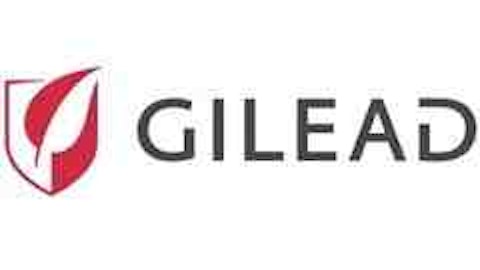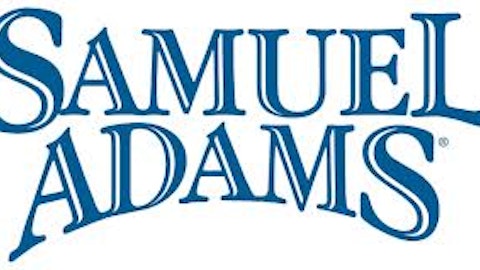A small section of the total Crohn’s Disease) patient population is resistant to standard treatment options. Known as tumor necrosis factor-alpha, or TNF-alpha, antagonists, these standard drugs include the popular Remicade from Janssen Biotech, a subsidiary from Johnson & Johnson (NYSE:JNJ), and Humira from AbbVie Inc (NYSE:ABBV).
GlaxoSmithKline plc (ADR) (NYSE:GSK) and ChemoCentryx Inc (NASDAQ:CCXI) are developing a non-biologic product vercirnon to treat this population. The product is important because currently there are no treatment options available for this subset of CD patients. Although the actual market size is not very large, a first entry product could expect to dominate it for a considerable period of time. The product could also, obviously, be useful for the general CD population.

However, that optimism suffered a setback recently when vercirnon produced unsatisfactory results for one of its phase 3 trial studies.
Challenges with vercirnon
Vercirnon failed to meet the primary end point of the SHIELD-1 study for the treatment of moderate to severe Crohn’s disease. SHIELD-1 is one of four studies (SHIELD-1 to 4) to evaluate the safety and efficacy of the drug in Crohn’s disease patients. The SHIELD-1 study was conducted primarily with patients where the disease was not controlled in conventional therapies and patients who are resistant to TNF-alpha antagonists. The candidate also failed to meet a key secondary endpoint of clinical remission, and further recruitment for the trial has been suspended pending evaluation.
What happens now
Vercirnon, an orally administered drug, was supposed to have been launched in 2016. Now, with this setback, the product launch may be delayed, assuming everything else goes as planned and the drug successfully goes through the other tests.
The two products that get the most benefit from this setback are Johnson & Johnson (NYSE:JNJ)’s Stelara and vedolizumab from Millennium Pharmaceuticals, a subsidiary of Takeda of Japan. Stelara, an IL-23 monoclonal antibody inhibitor indicated for psoriasis, is under advanced phase 3 trial for the treatment of Crohn’s disease and can also be used in patients resistant to TNF-alpha inhibitors. If successfully approved, this gives Stelara a slight edge over the competition because it is a more comprehensive product. However, vedolizumab could have higher market share compared to Stelara due to early arrival and low price. Vedolizumab and Stelara are expected to launch by 2013 and 2016, respectively.
Current market scenario
Since 2011, the Crohn’s disease therapeutics market is dominated by two tumor necrosis factor-alpha (TNF-alpha) inhibitors Remicade and Humira.
Remicade is the leading drug in Johnson & Johnson (NYSE:JNJ)’s immunology portfolio, used for a comprehensive range of immune related disorders. The product is clinically effective in Crohn’s disease and other indications, which is reflected through its quarterly performance. In the recent quarter ended June 30, 2013, sales increased by 10.3% at constant currency to $1.7 billion over the prior year. Approval for additional indications will further boost its sales in future, which is important keeping in mind its patent expiration by 2015 in Europe and 2018 in the U.S. In addition, the product is considered for use in post-operative Crohn’s disease, and the company plans to conduct additional studies to validate its efficacy.
Similarly, Humira has a strong clinical profile. It is a well accepted drug with potential benefits in the treatment of Crohn’s disease along with other inflammatory diseases. In the recent quarter ended June 30, 2013, Humira’s sales were $2.6 billion, an increase by 12.8% at constant currency compared to prior year. The product will continue to report higher sales in the coming quarters with recent approvals for related gastrointestinal disorders. AbbVie Inc (NYSE:ABBV) expects incremental sales of more than $1.5 billion from this new indication.
Conclusion
Trial results stalled vercirnon’s hopes against its competitors in Crohn’s disease therapies. Further studies on its efficacy and safety will improve its position going forward. In addition, this is a novel molecule that is not yet approved or licensed for use anywhere in the world. Over the years, if the company develops it for other indications, there may be some upside to its potential. For the time being, however, investors will have to wait and see whether GlaxoSmithKline plc (ADR) (NYSE:GSK) and its partner will move forward with the development of this drug.
The article The Impact of a Failed Crohn’s Disease Trial Study originally appeared on Fool.com and is written by Kanak Kanti De.
Kanak Kanti De has no position in any stocks mentioned. The Motley Fool recommends Johnson & Johnson. The Motley Fool owns shares of Johnson & Johnson.
Copyright © 1995 – 2013 The Motley Fool, LLC. All rights reserved. The Motley Fool has a disclosure policy.





